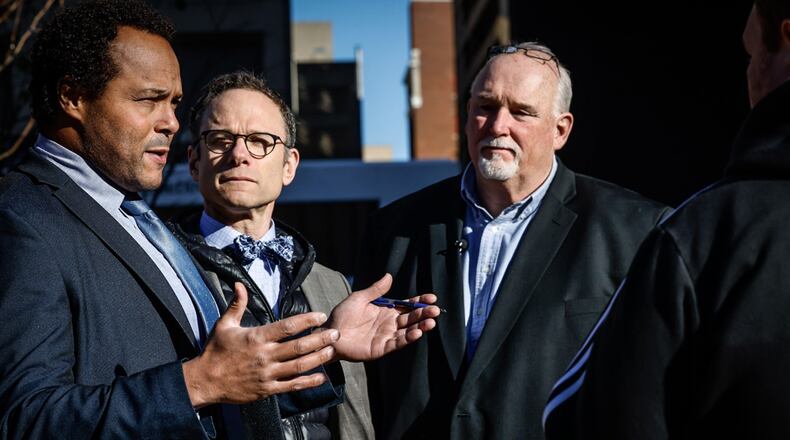Here are 9 key takeaways from our reporting:
1. Gillispie: There is no question Gillispie suffered harm, spending more than 20 years in prison for sexual assaults he didn’t commit. This story from Tom Archdeacon tells of Gillispie’s time in prison and how he channeled his energy into a unique art form that has since earned him international acclaim.
2. The verdict: A federal court in 2022 awarded Gillispie a $45 million wrongful conviction verdict, the largest in state history.
3. The problem: Miami Twp. doesn’t have $45 million. The township has a large budget, but most of its revenue is tied to levies that legally must be spent on designated purposes. The township only has about $1.2 million in discretionary revenue, which it uses for staff salaries and parks.
4. Option 1: These things would normally be covered by insurance. But the insurer that would have covered it went insolvent years ago. So that’s a no-go.
5. Option 2: Parties that lose civil suits can take out a “judgement bond” to pay it off. But they must be paid back within 25 years, and Miami Twp. can’t do that.
6. Option 3: They could try a payment plan, but even if they completely stopped funding staff salaries and parks, it would take 45 years to pay it off. And that doesn’t include interest, which could be more than $1 million a year.
7. Option 4: The township could go to voters asking for a new tax just to pay the judgement. But how likely are voters to approve a tax that gives them zero benefit just to resolve a misdeed committed by someone else decades ago?
8. Option 5: That leaves bankruptcy, something that is actually possible for a township under the law, but that has never happed in Ohio history.
9. The quote: “The Township will be financially ruined for generations by the (court’s) opinion that upholds and places squarely on its 31,000 residents the largest civil rights verdict in Ohio, which was rendered not against the township but against a single detective for his actions thirty years ago,” attorneys for Miami Twp. said in a mid-May court filing.
About the Author

